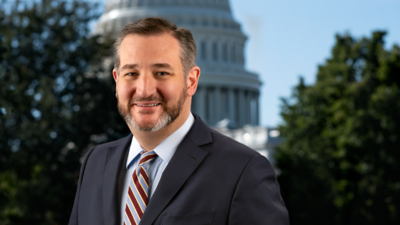Leslie Corbett, Executive Director at Illinois Equal Justice Foundation | iejf.org
Leslie Corbett, Executive Director at Illinois Equal Justice Foundation | iejf.org
This appropriation represents state-level funding authorized by lawmakers, reflecting what was approved in the budget, not necessarily disbursed. The funds cover only State of Illinois support and exclude federal, local, or other public sources.
Founded in 1999 by State of Illinois, Illinois Equal Justice Foundation states that its mission is: “The Illinois Equal Justice Foundation funds civil legal aid in Illinois to champion the rights of those burdened by barriers to justice. We envision equitable access to and navigation of the Illinois civil legal system.”
You can learn more about the organization at its website.
In its most recent IRS Form 990 filing filing for tax year 2024, the organization reported $14,304,800 in total revenue. Of that, $13,772,000 came from government grants including federal, state, or local sources, making up 96.3% of total revenue.
The nonprofit listed $14,258,000 in contributions overall. It also reported $486,075 categorized under other contributions, which may include restricted donations, pledges, or bequests.
At the beginning of 2024, Illinois Equal Justice Foundation had $9,055,530 in assets. By the end of 2024, that figure had changed to $10,852,900, indicating a 19.8% growth in overall holdings.
According to its filing, public funding to Illinois Equal Justice Foundation increased in the last year. The group received $12,571,500 in government grants in 2023, compared to $13,772,000 in 2024—an increase of 9.5% year-over-year.
However, a Chicago City Wire analysis found that IRS filings frequently contain discrepancies when compared with publicly disclosed government grant reports and budgets.
Illinois Equal Justice Foundation is one of hundreds of nonprofits across Illinois that receive substantial support from state taxpayers while also fundraising privately.
In 2025, Illinois lawmakers introduced House Bill 1266, also known as the Department of Government Efficiency (DOGE) Act. The proposal would create a new oversight body within the Office of the Auditor General tasked with identifying cost-saving measures, reviewing agency performance, and advising on audit priorities. If passed, DOGE could bring additional scrutiny and performance evaluation to taxpayer-funded organizations.
According to ProPublica, Illinois has more than 78,000 active tax-exempt organizations, including nearly 60,000 classified as charitable nonprofits. In their most recent IRS filings, these groups reported a combined revenue exceeding $156 billion.
| Term | Name | Title |
|---|---|---|
| 2024-2024 | Allison Zidek | Finance Director |
| 2024-2024 | Cristina Nutzman | Director |
| 2024-2024 | Dorothy G Capers | Director |
| 2024-2024 | Faiq Mihlar | Director |
| 2024-2024 | Gray Mateo | Director |
| 2024-2024 | Harold B Oakley | Director |
| 2024-2024 | Hon Jeffrey Schoenberg | Director |
| 2024-2024 | Hon Patti Bellock | Director |
| 2024-2024 | Hon Viviana Martinez | Director |
| 2024-2024 | JAE SOOK LEE | Treasurer |
| 2024-2024 | Keith Emmons | Vice President |
| 2024-2024 | Kendric M Cobb | President |
| 2024-2024 | Kenneth M Kirkwood | Director |
| 2024-2024 | Lauren Meachum | Director |
| 2024-2024 | Leslie Corbett Chenoweth | Executive Director |
| 2024-2024 | Nathan B Hinch | Director |
| 2024-2024 | Nicholas A Gowen | Director |
| 2024-2024 | Ryan Gammelgard | Director |
| 2024-2024 | Shanin Terri Farmer | Director |
| 2024-2024 | Suheily Natal Davis | Secretary |
| 2024-2024 | Tobin Taylor | Director |
| Year | Name | Title | Compensation |
|---|---|---|---|
| 2017 | Nancy Garcia | Communications Intern | - |






 Alerts Sign-up
Alerts Sign-up